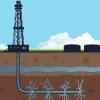 Pia Jensen Apr 6, 2013 01:08 |
Hi Dave,
It'd be great if you would address pertinent issues raised in this post on thorium
Thorium: Why We Don’t Want It nowarnow.wordpress.com/2012/08/03/thorium-why-we-dont-want-it/
|
 Pia Jensen Apr 6, 2013 01:03 |
oops, sorry, I thought this was gong to be your thorium skyscrubber proposal, my apologies for placing this comment on this proposal.
|
 Mark Capron Apr 30, 2013 06:09 |
Dear Dave,
Yes. Fracking need not be limited to fossil gas and oil production. Have you considered offshore geothermal energy in fractured olivene or basalt with supercritical CO2 as the working fluid? I could send you more info, but am still looking for someone who can estimate how fast the circulating CO2 will be converting to a mineral. I need a basic number, ___ kg of CO2 per m2 per day. Also need to know about how much rock surface area per volume the fracking operation causes. Our team prepared a proposal for offshore geothermal in 2010.
Also, have you made a list of CDR techniques and their associated costs? Our analysis, summarized in "Negative carbon via Ocean Afforestation" (bottom of page, http://podenergy.org/Ocean_Afforestation.html) has zero cost to concentrate bio-CO2 from air to a gas that is 90:10 CO2:CH4. Then one of many compress-liquefy-contain-hydrate-store-monitor-maintain options costing $16 per ton of CO2 stored.
Mark
|
 2013frackingjudges 2013frackingjudges Jul 1, 2013 04:18 |
Sequestering CO2 from the atmosphere could certainly be one way to effectively combat climate change. It would have been helpful to hear more about the details of the proposal - timeline, projected costs, and who would take the proposed actions. Some elements of the proposal, like nuclear power, seem more targeted towards climate change in general, rather than the climate impacts of hydraulic fracturing specifically.
|
